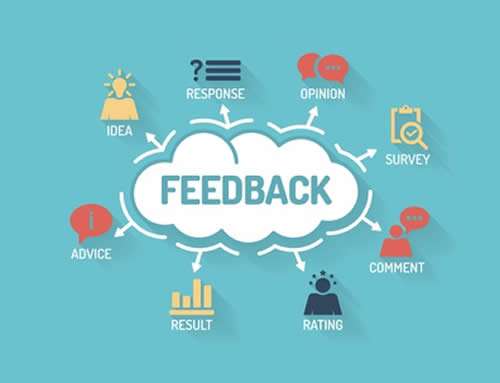Managing a project can be daunting. It's easy to know where the project should end. But knowing how you should start – and all the tricky steps along the way – are a different matter.
There's a lot to think about - deadlines, budget, collaborators, technical challenges, and so much more. As project manager (PM), your job is to turn these complex requirements into a structured plan and effective processes.
If that's a scary thought, don't worry. You can do this. Here are six simple hacks to make you a better PM and get your big new project up and running in no time. And you can start using them right now.
1. Scope out your project
You already know a project plan is a necessity. But precisely defining the project scope could save you even more time and headaches - especially if you're carrying out this project on behalf of a client, or any other party.
Clearly defining your project helps prevent ‘scope creep'. That's where the client needles you to add more features and value to the project as you go along.
If you define the scope before starting, and get every stakeholder to agree it, that can't happen. Whenever scope creep looks like a possibility, you can just pull out your signed project agreement and say, "sorry, that's not what we agreed!"
A detailed scope also makes writing your plan easier, because you know all the features and outcomes you need to plan for.
2. Set appropriate expectations
We already set some expectations with our project scope above. But there, our aim was to limit the project itself. Now, we want to make sure everyone working with us takes the right approach.
There are many ways to approach a project. You can go for quality at all costs. You can do it as cheaply as possible. You can spend money hiring contractors to do the work. You can use high-tech, or traditional methods.
The important thing to remember is that each person working on your project will bring their own ideas about which is approach is best. Left unchecked, some will therefore spend ages perfecting tiny details, while others race to meet deadlines at any cost.
It's not hard to imagine the problems this can cause. That's why our second project management hack is this: set your team's expectations. Make sure everyone knows the budget, the timescale, and the required approach. In other words, make sure they know what constitutes success.
When everyone is on the same page, suddenly your project will run a lot more smoothly.
3. Build client feedback into your workflow
Once your project is underway, it's tempting to just get your head down and keep working until it's done. That would be a seriously bad idea, because your project requirements are likely to change – even if you've set a tight project scope. Client feedback, for example, could alter how you need to implement some project features without changing the scope.
As project manager, you also need to track and coordinate the progress of the people on your team. If you've split your project into many small tasks, it's likely some cannot be started until others have been finished.
You therefore need a system for setting goals/milestones, recording progress, and feeding back. Here's a smart and simple method:
• Break your project into manageable tasks and assign them to appropriate members of your team. Each of your team now has a work schedule.
• Have team members report back each time they complete a task, so you can track progress
• Review the outcome of each task after completion, to make sure the outcome is satisfactory. Get the client involved at key milestones, so they can share feedback.
• Allow time for to implement the client's feedback and update your plans accordingly.
By dealing with client feedback as you go along, you won't get any nasty surprises at the end.

4. Get automated help via project management apps
OK, but what is the best way to build client feedback into your workflow? In fact, what is the best way to build your workflow?
Many project managers today are using a new wave of project management apps such as Basecamp, Casual, Evernote, Slack, or Trello. You'll find some reviews of project management apps
here. Most of these apps are either free to try or free to use, and they bring some pretty unmissable benefits:
• You can easily centralise information about your project, so that team members can check it any time and from anywhere
• It's easier to map out project goals, assign tasks, and record progress
• Your team can share files and discuss the project in a central virtual place
All the above can save you loads of time and resources.
5. Use your leader's aura to inspire greatness
When you are the leader of a project, the people working for you tend to make two assumptions. Firstly, that you are very capable. And second, that they need to do what you say! In other words, your team will follow and believe in you until you give them reason not to.
You can tap into this leader's aura to get more done. If you have a good idea, it's easier to get people on board when you're the leader. And when you spot a hidden talent in one of your team, such as design, you can make the most of it by assigning that person more design tasks.
It's the perfect hack, really. As PM, you get people to work harder and smarter than normal. So, don't waste your leadership status – take control!
6. Be prepared to negotiate
Unfortunately, the leader's aura doesn't always last. No matter how good a PM you are, your staff may relax their efforts as they settle into working with you. Familiarity breeds contempt, as they say.
Suppliers and partners, too, aren't always easy to work with. When you're working with tight budgets and timeframes, it's hard to get everything done by normal means.
So, don't use normal means. Instead, be prepared to
charm and negotiate your way to project management success. Challenge your team to work their hardest and achieve more. Don't be afraid to ask for a lower price from suppliers. And use your personality to get the people you need on your side, on your side.

Don't forget the post-mortem
With these essential hacks, your projects will run more smoothly and end more successfully.
But don't forget this bonus hack: always conduct a ‘post mortem' review at the end of your project, so you can analyse what went right and how you can improve project management next time. Over time, you will develop a clear and evidenced picture of the PM methods that work best for you.
And who knows, maybe you'll discover your own set of project management hacks along the way!


























